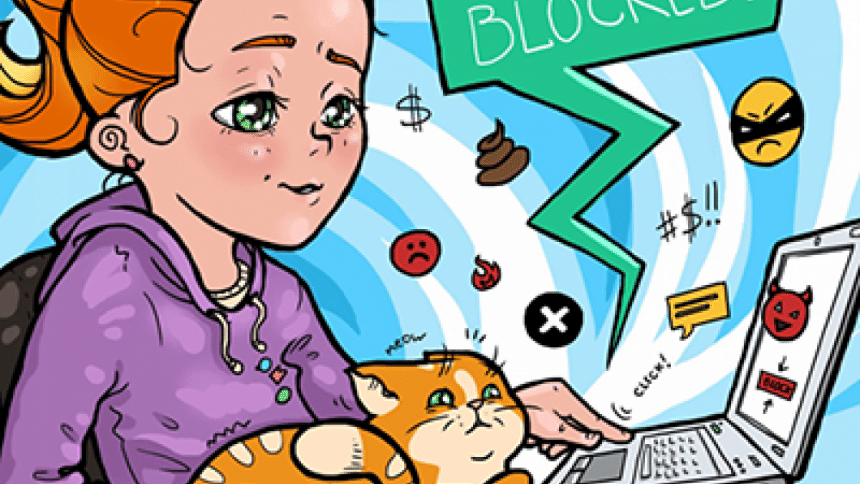‘49% Bangladeshi school pupils face cyberbullying’

A global mobile phone giant has found in a new region-wide survey that 49 percent of school students in Bangladesh have been victims of cyber bullying in a way or the other, revealing that young people are increasingly becoming vulnerable to such harassment.
According to the Safe Internet Study, conducted by Telenor Group, the students said they are either "being bullied or disturbed online" or "being bullied by the same person both online and offline" or they have actually engaged in the act of bullying others online per the anonymity of the internet.
To better understand online behaviors, Telenor Group today released the results of its Safe Internet study, which examined internet safety knowledge among students across three of its markets in the region: Bangladesh, Thailand and Malaysia.
The study analysed school students' responses to various internet-related threats such as cyber bullying and peer pressure in order to understand the factors influencing behaviour patterns and to develop solutions towards making the web a safer environment.
The study revealed that over half of the pupils in all three countries-70 percent in Malaysia, 67 percent in Thailand and 61 percent in Bangladesh-- would not send explicit messages, also known as 'sexting', using online.
The study found that 49 percent of pupils in Bangladesh said they succumbed to at least one form of peer pressure, in comparison to a lesser 39 percent of Malaysian students and only 35 percent of Thai students.
The inaugural region-wide study also demonstrated that school students in all three countries tend to confide in parents and teachers when faced with online issues that they do not know how to solve alone.
In Bangladesh, 38 percent students said that they would consult with their parents in comparison with 55 percent of the surveyed pupils in Thailand likely to approach their parents and 47 percent in Malaysia.
School students between the ages of 12 - 18 years were interviewed in each of the markets, with respondents concentrated in key cities.
The study covered 1,510 pupils in Bangladesh, 1,896 pupils in Malaysia and 1,336 pupils in Thailand.
Grameenphone, a Telenor subsidiary, is Bangladesh's largest mobile phone operator.

 For all latest news, follow The Daily Star's Google News channel.
For all latest news, follow The Daily Star's Google News channel. 








Comments